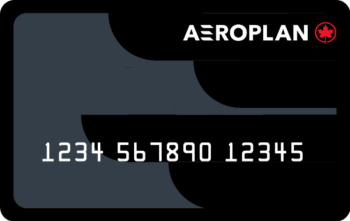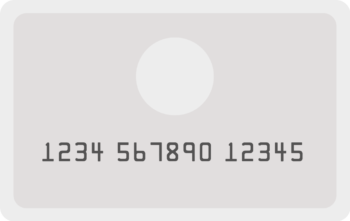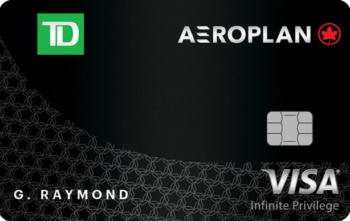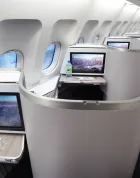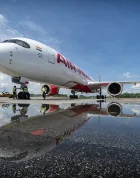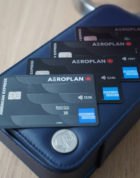With quite a few ultra-low premium fares popping up in recent weeks, it’s time to add another installment to the Airline Secrets series and talk about the mysterious phenomenon of mistake fares.
Whether it’s a fat-finger mistake or an ill-timed flash sale, mistake fares seem to be appearing more and more during the pandemic era, and since these fares represent spectacular deals that are often even better value than redeeming points, it’s crucial that we understand what they are and how they work.
In This Post
- What Are Mistake Fares, and Why Do They Occur?
- How Can You Book Mistake Fares?
- Playing the Waiting Game
- If the Airline Doesn’t Honour the Fare…
- My Experience with Mistake Fares
- Conclusion
What Are Mistake Fares, and Why Do They Occur?
Mistake fares are exactly what they sound like – fares that are mistakenly priced much lower than usual.
Think along the lines of round-trip Cathay Pacific First Class from Vietnam to North America for US$845, Air France La Première one-way from Algeria to the US for US$480, ANA business class round-trip from Vancouver to Sydney for US$700, or Japan Airlines business class round-trip from Vancouver to Bali for US$850.
Now, to be clear, airlines offer deals and promotions all the time, but mistake fares are simply on another level. These fares are not announced with the intention of wooing customers, but rather, they are published unintentionally and are withdrawn very soon after they are widely publicized.

Japan Airlines business class on Vancouver–Bali was recently bookable for US$850 round-trip.
(Incidentally, some promotional fares in the past have blurred the lines between an ultra-deep discount and a mistake, giving passengers some degree of latitude to argue that airlines should always be held to honour their fares, since one cannot easily distinguish a mistake fare from a fare sale.)
The reasons for why mistake fares are published can vary widely from human error to an IT glitch. Some common factors include:
-
A simple fat-finger mistake, where an extra digit was missed when someone was loading the fares
-
A business class or First Class ticket mis-pricing as economy
-
Self-dumping: when some component of the fare causes the fuel surcharge component to be dropped or “dumped”, lowering the fare significantly
-
An error in currency conversion, such as the $51 United First Class tickets issued in Danish krone
-
An error in the routing rules, such as when Emirates First Class flights on the fifth-freedom route between Penang and Singapore could be booked via Dubai
-
A technical issue on the part of an online travel agency
-
Any combination of the above
How Can You Book Mistake Fares?
When a mistake fare is first discovered, it’s often shared in tight-knit circles, almost akin to manufactured spending. Mistake fares can stick around for weeks or even months in this state, with only those who are in-the-know booking them and taking advantage.
The reason is the same: if too many people are booking it too quickly, the airline will discover the mistake and immediately fix the fare, often cancelling tickets in its wake.
Additionally, an airline is more likely to honour the fare if only 10 people are ticketed in error, thus having to bear a relatively small loss, compared to if 2,000 people had managed to take advantage.
(By the way, the process of actually discovering a mistake fare is a whole other ball game among savvy travellers, and one that I don’t have too much experience in. There are individuals out there who are spending a huge chunk of their lives dedicated to discovering mistake fares and sharing them among their close circles so that they can travel the world on the cheap – not dissimilar to our more familiar pursuit of Miles & Points, to be sure.)

Hong Kong Airlines offered round-trip business class fares for US$531 in early 2019.
Still, mistake fares are not quite as secretive as manufactured spending, and at some point, the best mistake fares will get published on websites like Secret Flying, FlyerTalk’s Premium Fare Deals forum, and Miles & Points websites like this one. I suggest keeping tabs on these resources regularly, either through an RSS feed such as Feedly or simply visiting the page a couple times a day.
One of the most important things to know about mistake fares is that they typically don’t last long. There is usually a window of a few adrenaline-fuelled hours after the fare is widely published that it remains available, and everyone who learns about it scrambles to book something. Eventually, the airline takes notice and corrects the mistake, at which point it is no longer bookable and is said to be “dead”.
Therefore, if you spot a mistake fare that piques your interest, it’s very important to book first and ask questions later, to the extent that’s possible. It might be tempting to deliberate over the “perfect” dates for your trip or optimize for a “perfect” routing, but you risk missing out on the fare entirely.
Remember that major online travel agencies often have 24-hour free cancellation windows, so you could even book a few separate trips first, before choosing which trips you’d like to keep afterwards.
I myself can think of a few instances where checking in with my fiancée about taking a trip and waiting for a reply meant the fare disappeared before I could book it.

Etihad Airways business class was briefly bookable for as low as US$211 in December 2014.
Playing the Waiting Game
After booking a mistake fare, it’s time to play the waiting game and see if the airline will honour the fare.
Generally speaking, while passenger protection regulations around the world do insist that airlines honour their published fares in usual circumstances, they have generally skirted around the matter of mistake fares and avoided setting a hard precedent, leaving the fate of each mistake fare – and indeed, each individual traveller who books a mistake fare – to be decided on a case-by-case basis.
It goes without saying that you shouldn’t make any non-refundable plans for your upcoming trip based on a mistake fare, especially since airlines tend to cancel them more frequently than they choose to honour them, and the last thing you want is for the airline to not honour the ticket and you’re stuck with hundreds of dollars’ worth of hotel fees and tours.
As a rule of thumb, Asian airlines have tended to honour mistake fares more frequently in the past (see the Cathay Pacific First Class fare, the ANA Vancouver–Sydney fares, the Hong Kong Airlines fare from Los Angeles, and the recent JAL fare deals out of Vancouver), whereas European airlines have tended to take a more hardline anti-consumer stance on this matter.
Perhaps there’s an element of the culture there, where Asian airlines might place more value in honouring their word, whereas a “business is business” mentality dominates in the Western world.
If an airline honours the fare, it might be the case that nothing happens, and you slowly hear about travellers successfully flying on these tickets. Or the airline might choose to announce it openly as well.
Happy 2019 all, and to those who bought our good – VERY good surprise ‘special’ on New Year’s Day, yes – we made a mistake but we look forward to welcoming you on board with your ticket issued. Hope this will make your 2019 ‘special’ too!
.#promisemadepromisekept #lessonlearnt— Cathay Pacific (@cathaypacific) January 2, 2019
Either way, it’s time to look forward to the fruits of your labour: book your vacation days at work, plan your hotels and tours at your destination, and think about which champagne you’d like to enjoy onboard (if onboard drinks are still a thing in the future, that is).
If the Airline Doesn’t Honour the Fare…
Meanwhile, if an airline is not honouring the fare, some people will get their tickets cancelled earlier than others. You’ll read about these developments on FlyerTalk, from your friends who also booked, or through the same travel bloggers that posted about them. The airline might offer a full refund or perhaps allow you to travel in a lower class of service at the same price, but of course, neither is the desired outcome.
If you start to get wind that the airline won’t be honouring the ticket, it’s time to start getting creative about salvaging your ticket if at all possible.
You must be fully willing to accept the most likely outcome – that the airline likely will not honour the fare under any conditions and a refund may be your only option – but as a relentless deal hunter, you’re also unlikely to give up your affordable premium tickets without a fight.

ANA offered US$700 round-trip business class fares on Vancouver–Sydney in 2017.
The first step is to call the airline and try to have your ticket reissued, perhaps by playing dumb: you booked a ticket last week, but it’s suddenly been cancelled, and you have no idea why. If you’re lucky, the ticketing agent might be just as clueless as you appear to be, apologize for the “ticketing glitch”, and and reissue your ticket back in its original form.
You can also try calling any other airline or online travel agency that had a hand in your ticket. For example, you booked a codeshare on United stock with Air Canada as the operating carrier, you can try to convince both Air Canada and United to reissue your ticket, as well as the online travel agency that booked your ticket (Expedia, Priceline, etc.)
It’s likely they’ll send you on a wild goose chase with each airline telling you to contact the other, but be persistent and hang up and call again a few times, and you may just get lucky.
A final push towards being able to fly your ticket is to be a little crafty on the phone. If you have the legal chops to do so (or the confidence to make up for it), feel free to escalate to a supervisor and hit them with legislative lingo, perhaps making references to the US Department of Transportation (DOT)’s rulings and/or citing past instances in which this airline has honoured their mistakes.
Of course, the airline is unlikely to take your legal threats seriously, so you may well need to back up your words with real-life action if you are serious about holding the airline accountable for the fare they published.

Air France La Première was recently bookable for US$480, although the fare wasn’t honoured.
Ultimately, most of us take on a “live and let live” mindset when it comes to mistake fares: it’s great if they’re honoured, but we know that mistakes do happen, and I’d venture to say that no one but the most litigious travellers would be willing to initiate a multi-year legal battle solely to fly on a cheap fare.
If the above strategies don’t play out and your ticket remains downgraded or cancelled, it’s time to pursue your refund. Often times, this will happen automatically without the need for action on your part, but sometimes the manual refunds resulting from a mistake fare may take longer than usual to process; therefore, before booking a mistake fare, you should always be prepared to float the money for a few weeks if necessary.
Your previous efforts to reinstate the ticket might also deliver a small payoff at this point – indeed, when American Airlines had cancelled a mistake fare from Seattle to Tokyo, Expedia spent two hours on the phone with me attempting to reissue the ticket before finally settling the case and giving me a US$200 travel voucher in addition to the full refund. That’s not too bad for the meagre effort I had put into reclaiming the ticket!
My Experience with Mistake Fares
There’s only one major mistake fare that I’ve personally taken advantage of so far, and that’s the US$845 Cathay Pacific First Class from Vietnam to North America that went “on sale” on New Year’s Eve of 2018.
The fare was first discovered around 6pm Eastern Time or midnight in Paris, which is where I was celebrating New Year’s Eve at the time. I noticed the fare shortly after returning to the hotel, and proceeded to ignore Jessy for half an hour while I scrambled to book some tickets.

We had planned to be in Asia for the summer of 2019 anyway, so the outbound segment from Hanoi to Vancouver would be well-suited to that trip (and in fact, I had been trying and struggling to redeem two seats on Cathay Pacific First Class using Alaska miles shortly before that).
The interesting thing here is that even though I had originally booked the return segment of the mistake fare for October 2019, I was actually able to change the ticket for only a US$100 change fee to depart from New York JFK in March 2020 instead, linking it up nicely with my trip to the Maldives.
Remember, full-fare First Class and business class tickets tend to have very flexible fare rules, so if you can snag one of these tickets at a mistake rate that is subsequently honoured, then you can often make further changes afterwards to tweak the itinerary to your exact liking. That’s another reason to follow the principle of “book first, ask questions later”!

Flying Cathay Pacific First Class for under US$900 round-trip was one of my greatest wins.
And since this was a full-fare First Class ticket, I ended up earning 250% miles when crediting the flights to Alaska Mileage Plan, netting me around 22,000 Alaska miles per person for my troubles – which will get me closer towards the next flight on Cathay First or a similarly luxurious product.
I’ve yet to fly on any other mistake farers besides the Cathay First fare, although I have booked a handful of the more interesting mistake fares that have popped up in recent weeks and months, presumably because the airlines’ revenue management departments are more prone to error when they’re working from home. 😉
I generally share time-sensitive deals like mistake fares through my Insiders email list, so make sure you’re subscribed to that list to be notified. Just be prepared to take action as soon as you hear about one of these deals, lest you miss out on the fun!
Conclusion
Even if you primarily redeem points to travel in business class and First Class, the mistake fare “game” is well worth paying attention to on a regular basis, because the value in booking cheap erroneously published fares can be far greater, and can help you save your points – and indeed, even earn you extra points – for the next redemption.
While there is no way to predict what the next big mistake fare will be and when it will arrive, we can be certain about the fact that the inherent weaknesses in airlines’ systems means that there will be a next one sooner or later.
Success in this game is all about paying close attention to fare aggregators and travel forums, so that you are prepared to act when the time comes and secure an unforgettable experience at a fraction of the price.













